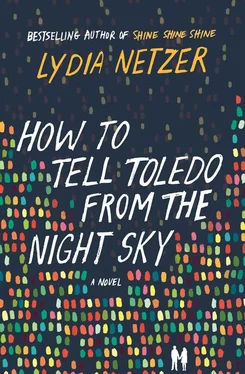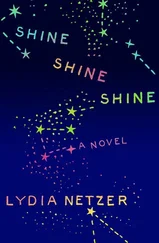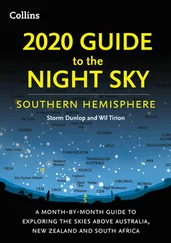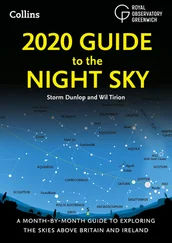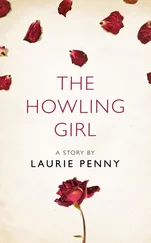“I said you’re a dreamer,” she repeated snappishly, and stalked off.
He followed her out into the hallway and down the stairs.
“Where are you going?” asked George.
“My office,” she said. Now is when he will say something about liking my skirt and wanting to talk me out of it, she thought. It will happen right now.
“Do you want to come out on my boat sometime?”
“Your boat? What are you, rich?”
“Yes,” he said. “It’s new money, though, so I don’t have an attitude yet. I’m all bewildered and charming about it.”
There were still people walking around in the building, waiting to have their moment with the great scientist. Can I have your autograph? I just love your equation, they would say. She planned to send an e-mail later. I am Dr. Irene Sparks of the Toledo Institute of Astronomy. I have read your book, it would say. I have these comments about your lecture.
Stiff, dry, intelligent. Just the kind of person you would want to send a stiff, dry, intelligent e-mail back to.
* * *
“What would you say to Lebernov after this evening,” she said to George, letting him walk her down the sidewalk.
“I’d tell him he had no soul.”
“You would not.”
“Dare me?” George stopped on the sidewalk. “Because we can go back in there right now.”
“George!” she said, and pulled him by the elbow so that they were walking again. Her hand stayed on his elbow, that wonderfully working hinge that connected the upper part of his arm to the bottom part. And they were walking along the sidewalk with her hand inside his elbow, her knuckles bumping up against his ribs. She had to reach up to hold on to him. He didn’t seem to notice.
“I’m surprised Miller didn’t stand up and bash his skull in with a chair leg,” said George. “I know he doesn’t buy into all that age of enlightenment claptrap.”
“Claptrap? Did you really just use the word ‘claptrap’?”
George growled at her and smiled. She liked the look of his face. She didn’t know which direction he had chosen to walk in, but she didn’t care. She kept looking up, seeing his face outlined against the night trees and the orange glow of street lamps. Fuck and run, she thought. Might not be so bad .
“You know,” said George, sort of wistfully, “everyone takes an astronomy course in college because looking at the stars is so cool and romantic. They get taught the constellations and everything, and how this used to be thought and that used to be believed. And then we get into calculating the distance in light-years from here to there, and everyone quits because they don’t like the math. I mean forget parallax.”
“It’s parsecs,” she said quietly.
“Right, parsecs, yes. But you don’t get what I’m saying. I don’t like the math. But I stayed with it. The math is a necessary evil, but the stars are still stars. It’s still cool and romantic.”
She looked over at him again, and he had a little smile on his face.
“Did you want to be an astronaut when you were little?” she said.
“No,” he said seriously, “always an astronomer.”
They were nearing the west edge of campus, where the reproduction of the ancient temple ruins were. Now George reached out to her, and took her by the hand, and led her through some of the rocks, and she let him because she actually was small and genuinely did need help over the climbing parts. For a while they were just climbing. There was a path around on the other side, but they didn’t use it. Then they were standing in the middle of the temple where the pillars were still in a rectangle, a dais at one end.
George pointed up to the night sky. It was really beautiful, the dark sky and all the stars, outlined by the stones and nothing else around.
“A star is being born right now,” he said.
“Stars aren’t born, George. And they don’t die. Lithium, hydrogen, fusion: that’s not birth. Just call it what it is. Don’t engage in that stupid anthropomorphizing garbage.”
“I like thinking about it that way,” said George.
“But I always thought,” said Irene, “that it was stupid to wander around and write poetry and sing. Elves do it. Not astronomers.”
“Really? You never read poetry?”
“Sometimes,” Irene admitted. “My mother read it to me.”
“Bless her. I like her already,” said George.
They stood under the bright sky, and she felt small next to the big columns, and the ruined room with no ceiling framed the stars. George was just standing there looking up. Maybe some people don’t feel scared when they think about comets and supernovas. Maybe they think it is wonderful.
“So do you want to?” said George.
“No!” she said automatically, and in an instant she was brought back out of the heavens, into her skin and her brain, which was wondering how many girls George had plundered on that dais. How many girls had he had under these clouds, being a poet like he wanted to be, shunning convention, throwing out math with a dramatic, sexy flourish? He would say, Look, Cassiopeia, isn’t it beautiful, and the girl would swoon, and he would put the moves on. His rough hand on her back, his face drawing down to hers, the warmth of his chest against her breasts.
“I mean go out on the boat,” he said. She stared at him.
“Um, I don’t know,” she said. She thought about how it would be. Bright sun. Sparkling smile. Probably wine. Wind. Freshness. “My mother just died.”
“Then we should go right away,” he said, “for best stargazing. I can go so far into Lake Erie, we may be able to still see her, up in the sky.”
“Wow,” she said, “That’s not what I was thinking at all.”
* * *
That morning, she had gone to an appointment at the funeral home.
Bernice’s body had been taken to the default funeral home for people whose bodies landed in the city morgue. Irene didn’t know whether to feel bad about this or not. The funeral home was called Metropolitan Funeral Home. It had a generic flavor. A red brick building in the shape of an H, and in the center a glassy lobby. One branch held a large chapel and one branch held administrative offices. One branch held the coffin showroom (there was a brochure titled “Merchandise”), and the other branch was entirely closed off. That’s where the bodies are, thought Irene, taking note of the way the building was mapped. That’s where my mother is. Back there in that part, next to where I parked. She’s inside, and she’s about to be lit on fire. As soon as I sign the paperwork, she will burn.
Irene was met by a smiling man in a black suit, who guided her to a luxurious-looking seat in the hallway between the offices and the chapel. There she waited for her consultant.
“I don’t want to buy a casket,” she had said earlier to Belion, who had called the funeral home on the phone for her. “I don’t want to buy an urn.”
“She doesn’t want to buy a casket or an urn,” Belion had reported into the phone. “She will come in and just sign papers. That’s all she wants to do.”
Belion had waited, his listening face on.
“Don’t you have something lying around to put the ashes in? Something regular?”
Irene felt she should have known which funeral home had exsanguinated generations of Sparks women, should have recognized the very building where they had lain in state. But she really had no idea what had happened to all the other generations of Sparks women. There was no record. Irene might be able to turn up something in her mother’s attic, but right here, right now, the Metropolitan Funeral Home, with all its easy-to-vacuum carpet and all its posh-looking chairs that you could wipe up with a paper towel, had been chosen for her.
Читать дальше
